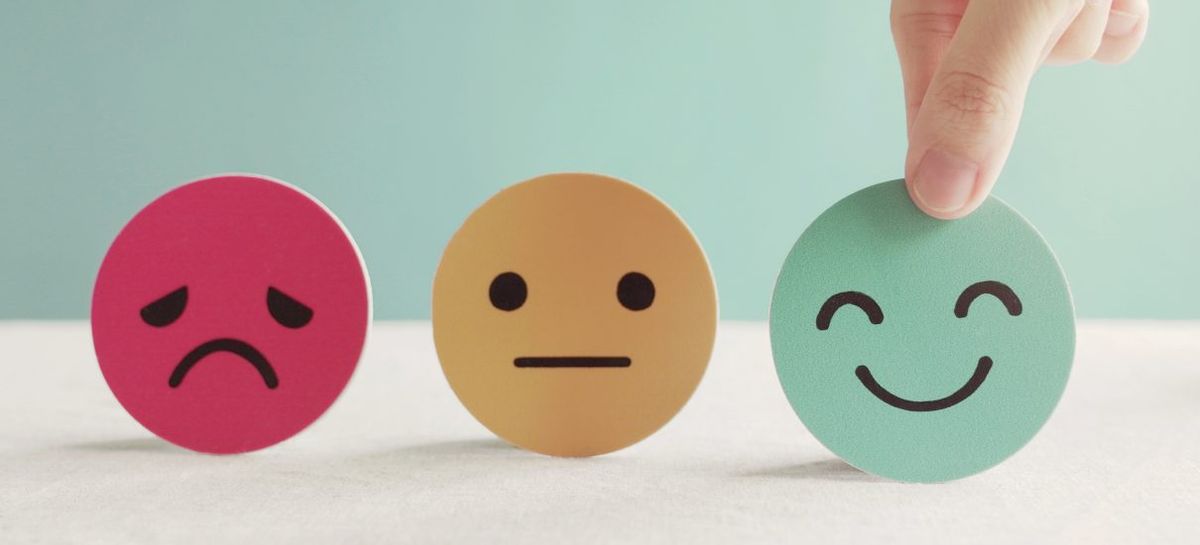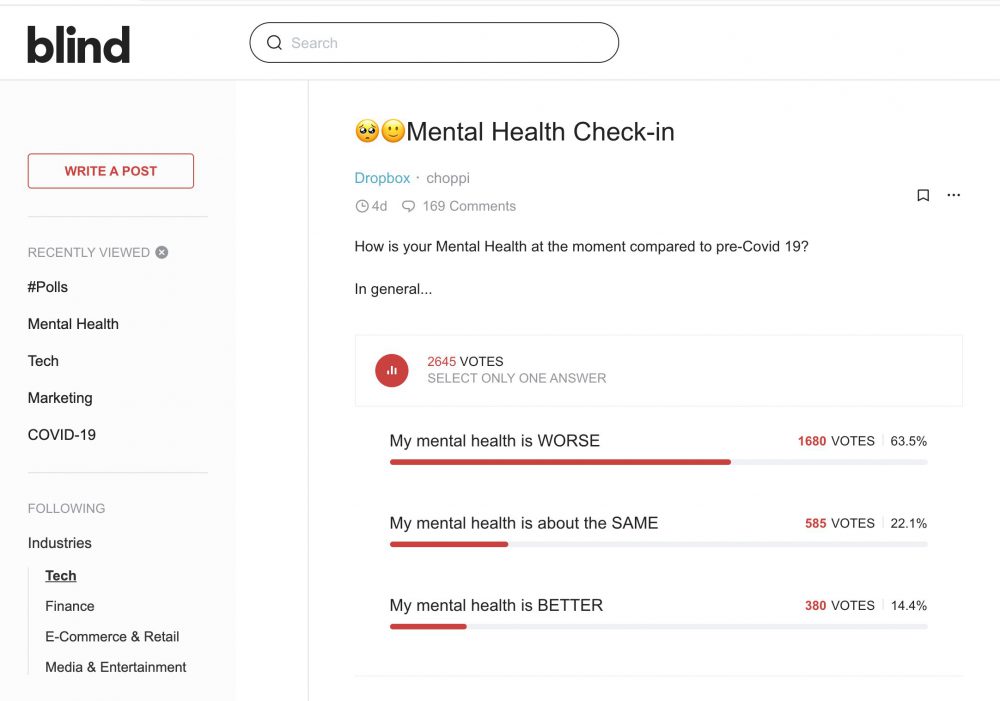Deteriorating Mental Health In The Workplace

As the pandemic relentlessly persists, we are seeing the highest levels of mental health issues reported since the pandemic first hit the U.S. in March. This is a troubling trend being fueled by unprecedented events that have to be dealt with in isolation.
On Blind, the anonymous professional network, a dropbox employee asked all users “How is your Mental Health at the moment compared to pre-Covid 19?”

Here are key learnings from ~2,400 respondents
- 64% of surveyed respondents say their mental health is worse
- Professionals who work at FAANG have had their mental health deteriorate (68%) marginally more than the entire workforce
- 72% of Facebook employees say their mental health is worse, which is not surprising given all the political issues the company has been at the center of
- 83% of Workday professionals say their mental health is worse
- 22% of surveyed respondents say their mental health is about the same
- Only 14% of surveyed respondents say their mental health is better
A Microsoft employee shared “I’m on the verge of losing my mind and quitting my job. Hate everything about it but I have no choice so I keep putting up with it.”
An engineer at Intel asked “Anybody in US with H1 visa thinking of quitting? Feels like that’s not even an option for us”
However, not all comments are bleak.
A Google employee made this about the work from home situation and shared “No more “influence-based leaders” walking over to my desk and interrupting me trying to get me to do their work. I’ve been so productive! I smoke meat during the day and eat like a king at night. Heaven. Hope I never go back.”
A Facebook employee shared “My mental health is better because now I spend more time with my family and with my old friends. COVID made me realize how much time I spent in useless meetings and being interrupted by some coworkers. Being away from the office has allowed me to branch out and take on more projects that personally interest me. Also I’ve prioritized journaling, working out and eating healthy. Plus I can take a nap whenever I feel mentally exhausted from work. I enjoy in general feeling that I have more agency over my time and where I live.”
These statistics follow a trend we have been following since March, and followed up again in June.
We gauged the platform’s emotional well-being in terms of their anxiety levels, feelings of loneliness, and productivity during social distancing in late March and then again during the first week of June.
Key Findings as 6/15-6/23 (3,279 Responses):
- Are you experiencing increased loneliness during work from home and social distancing?
- Loneliness is up by 11%
- Are you experiencing increased feelings of anxiety during work from home and social distancing?
- Anxiety is up by 5%
- 61% of professionals answered yes; compared to 56% in March
- 93% of Indeed.com professionals are feeling increasingly anxious
- 79% of Salesforce professionals
- 67% of Amazon professionals
- 63% of Microsoft professionals
- 93% of Indeed.com professionals are feeling increasingly anxious
- 61% of professionals answered yes; compared to 56% in March
- Have your productivity levels been impacted due to changes in your mental health while working from home?
- Productivity has been impacted by an additional 5%
- 58% of professionals answered yes, compared to 53% in March
- 70% of Facebook professionals have had their productivity levels impacted
- 66% of Google
- 62% of Amazon
- 70% of Facebook professionals have had their productivity levels impacted
- 58% of professionals answered yes, compared to 53% in March
It seems these feelings of loneliness, anxiety, and decreased productivity are translating to overall decreased mental health 6 months later.